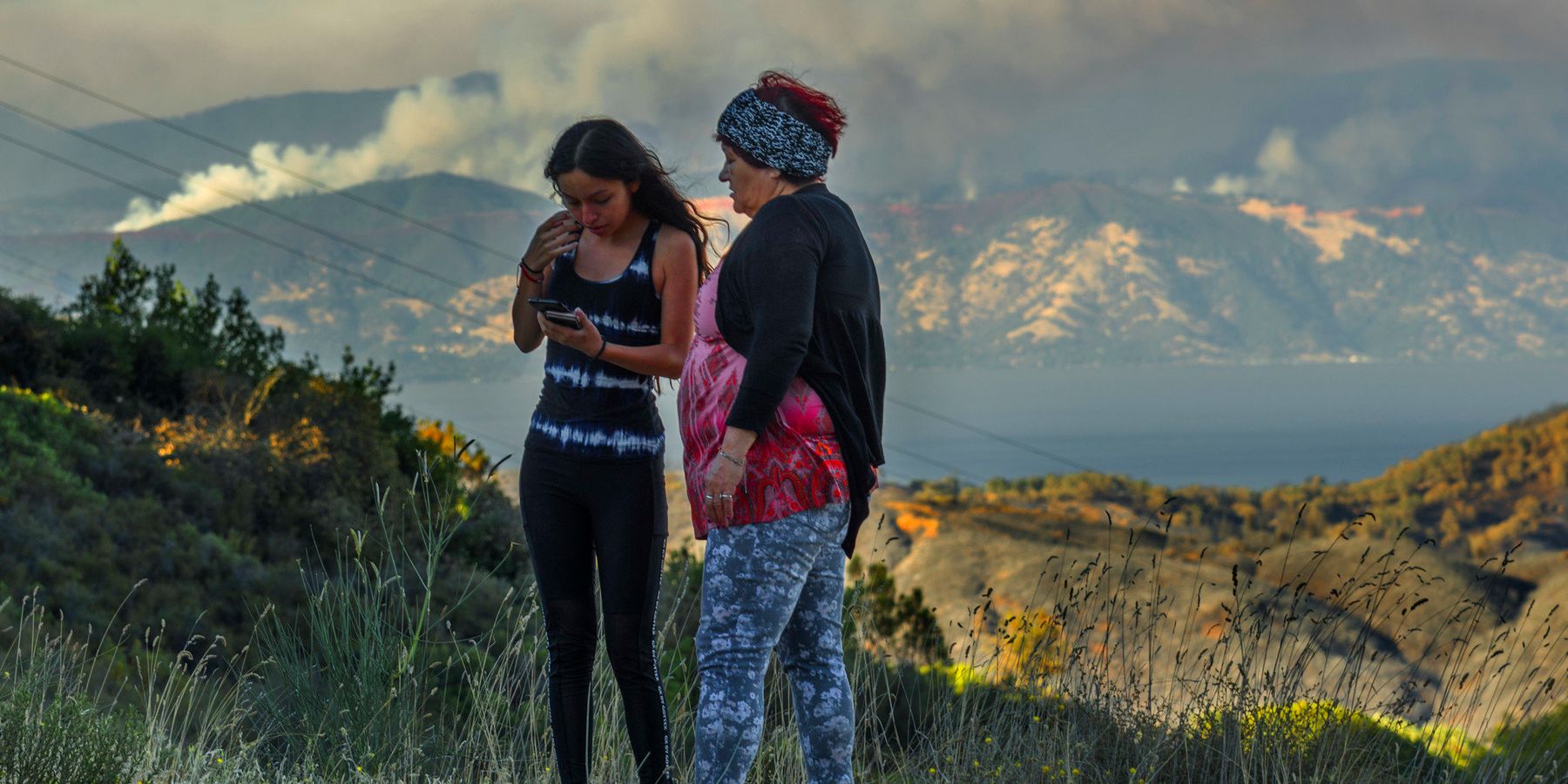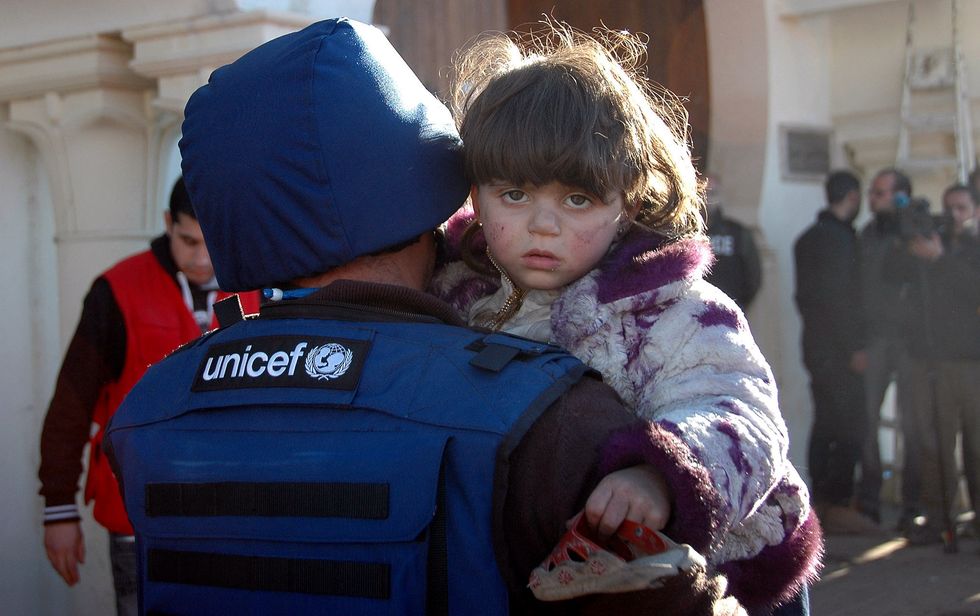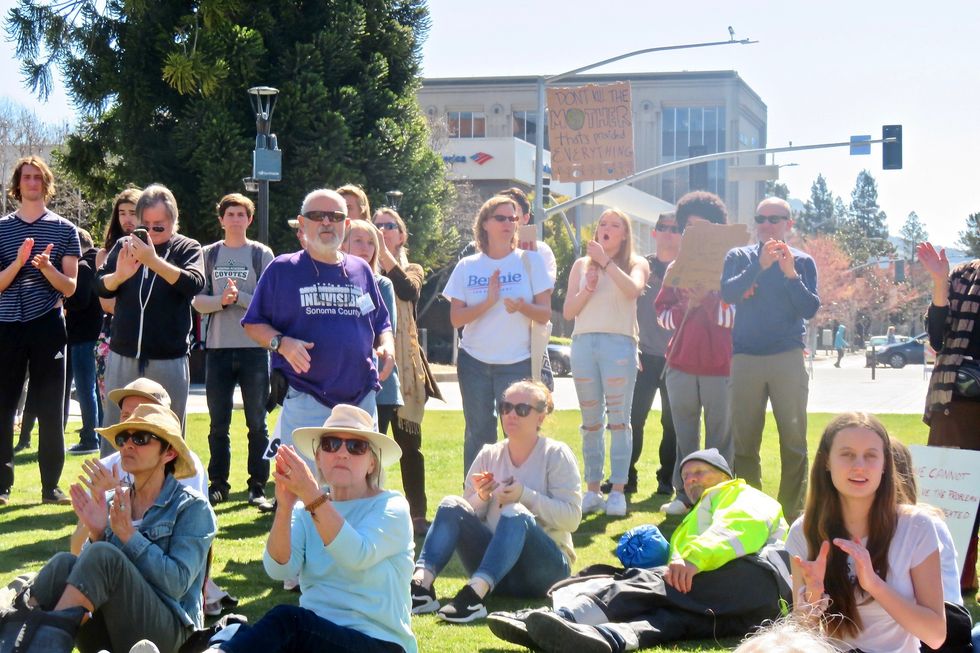
One of the most overlooked consequences of climate change? Our mental health
Ecoanxiety. Ecoparalysis. Solastalgia. Call it what you want— when it comes to climate change and mental health, the future is now.
Hardly a day goes by where we aren't reminded that the Earth's climate is changing and that we are responsible for much if not most of that change.
The findings of one study after another are punctuated by breaking news or the direct experience of wildfires, hurricanes and floods that forced thousands of people to evacuate, damage property, and erase tangible reminders of our past.
More ubiquitous, but less publicized, are the millions of people who are exposed to heat waves, long-term droughts, rising sea levels, and eroding coastlines, forcing them to move elsewhere or spend large sums of money building communities that are habitable.
We respond to such news and events in a variety of ways. Some of us sink into deep despair or simply resign ourselves to the inevitability of global climate change. Some of us live with the trauma of having survived life-threatening extreme weather events. Some of us actively avoid the reality of climate change or spend considerable psychic energy denying that it is happening or, at the very least, denying our responsibility for its happening.
Each of these responses represent a challenge to our mental health. For instance, people exposed to life-threatening extreme weather events are more likely to experience post-traumatic stress disorder, depression and anxiety.
People exposed to prolonged heat waves are more likely to make poor decisions that place them at risk for death or severe injury. People exposed to long-term drought are more likely to experience depression, interpersonal violence and thoughts of suicide. People exposed to sea level rise and coastal erosion are more likely to experience anxiety and interpersonal conflict with others in their community.
However, these mental health challenges are perhaps the most overlooked consequences of climate change.
Increasing temperatures and heatwaves, the spread of emerging infectious illnesses, and the widespread concerns about food security in drought-plagued regions of the world all threaten our physical health.
Environmental changes that threaten our livelihoods, access to food, and habitability of our communities lead to widespread unemployment and poverty, civil conflict, and dislocation.
“Climigrants”

A UNICEF member carries a child at a shelter center in Syria, 2014. (CredIt: World Humanitarian Summit/flickr)
Practically everyone has heard about the fighting in Syria, but few are aware that the conflict was preceded by years of drought in the eastern part of the country that led to a massive displacement of more than a million residents to the western part of the country.
Many of the migrants fleeing to Europe for the past seven years came from the Sahel region of Africa that has experienced drought for a decade or more. Many of those migrants arriving at the southern border of the United States during the past two years have come from the "dry corridor" of Central America, which has also experienced periods of drought alternating with periods of extreme flooding.
In both instances, food insecurity and reduced agricultural productivity have been associated with increased levels of violence and poverty. For residents of these and many other parts of the world affected by global climate change, the only alternative is to leave.
While migration is considered a form of adaptation to climate change, it also comes at a cost. Climate refugees or "climigrants" often are able to bring little with them apart from the mental health problems created by the environmental changes and their threats to health and well-being.
Many are exploited by human traffickers who extort huge sums of money to assist them in their passage elsewhere, only to abandon them in their greatest time of need.
Many seek resettlement in countries and communities that are suspicious of and hostile to outsiders, especially those with great needs and few resources who represent different cultural traditions and speak different languages. All of these contribute to further risks of mental health problems, including depression, anxiety, post-traumatic stress, substance use and interpersonal violence.
The old, the young, women, less educated, the poor, and those with a pre-existing mental health condition are especially susceptible to these problems.
Youth at risk

Teens and youth attending Fridays for Future in Liguria, Italy, in March 2019. (Credit: Tommi Boom/flickr)
While each of these mental health problems are significant, potentially affecting hundreds of millions of people in the next 30 years, they pale in comparison to the problems that are manifesting in response to the existential threat of global climate change.
These problems have been given specific names like 'ecoanxiety', 'ecoparalysis', and 'solastalgia', the latter referring to the distress and isolation caused by the gradual removal of solace from the present state of one's home environment.
Young people are especially vulnerable to these syndromes. A recent survey of youth living in the United States commissioned by the Washington Post and Kaiser Family Foundation found that more than 70 percent believe climate change will cause a moderate or great deal of harm to people in their generation. About 57 percent of those interviewed reported that climate change makes them feel afraid.
Climate coping

Hundreds of young activists joined a Youth Climate Strike in Santa Rosa, California, in March 2019. (Credit: Fabrice Florin/flickr)
The good news is that the same survey found that 52 percent reported that climate change makes them feel motivated to do something about it, and one in four teenagers have participated in a walkout, attended a rally or written to a public official to express their views on the subject.
These youth are not alone. Science tells us that people who engage in active forms of coping have better mental health.
In addition to working to mitigate global climate change by reducing carbon emissions and promoting clean energy and lifestyle changes, there are numerous ways to combat these mental health consequences.
Understanding the scope and scale of mental health impacts associated with climate change in general and climigration in particular is an important first step to developing and implementing services designed to treat or prevent these impacts.
These include planned relocation of communities, public health education, violence prevention, risk communication, use of evidence-based treatments for mental health problems, training of non professionals in delivering psychological first aid and other interventions, personal engagement in environmental conservation, and promotion of positive psychological outcomes associated with climate change.
All of this will take a concerted effort on the part of mental health professionals, experts in other fields, and, most importantly, those who have already experienced the consequences of climate change and those most likely to experience similar consequences in the future.
When it comes to climate change and mental health, however, the future is now.
Lawrence A. Palinkas is the Albert G. and Frances Lomas Feldman Professor of Social Policy and Health in the Suzanne Dworak-Peck School of Social Work at the University of Southern California. He is the author of a book on Global Climate Change, Population Displacement, and Public Health: The Next Wave of Migration, scheduled for publication in 2020 by Springer Press.













